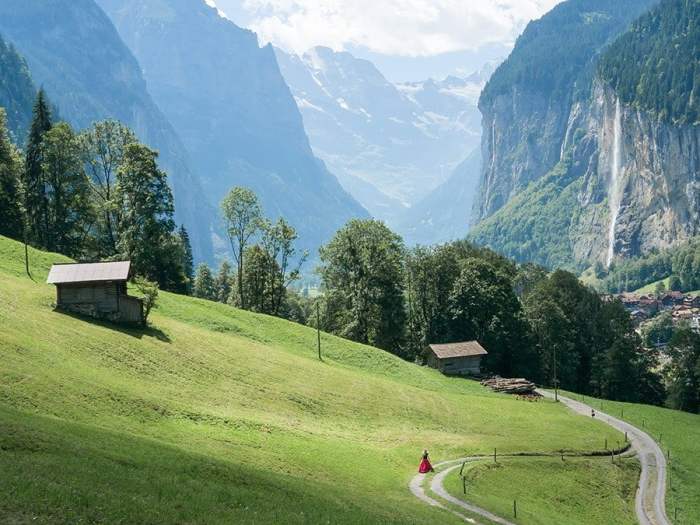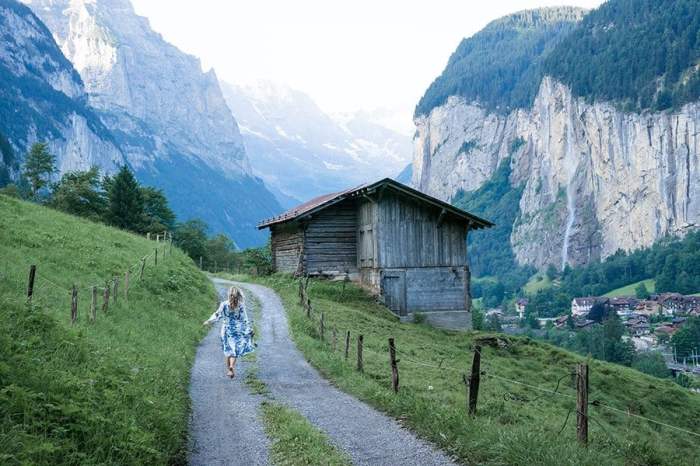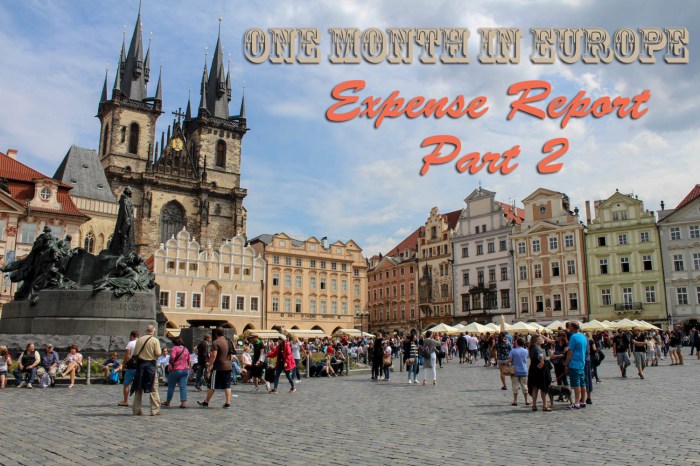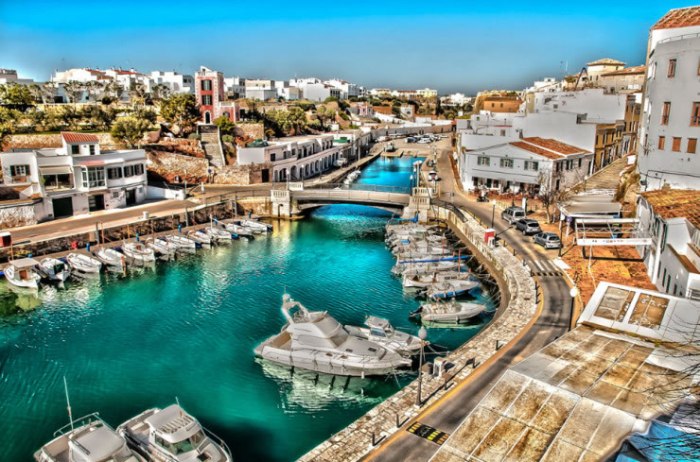How To Travel Switzerland On A Budget
How To Travel Switzerland On A Budget? It’s not a myth, it’s a reality! Switzerland, with its stunning mountain landscapes, charming villages, and world-class cities, is often perceived as an expensive destination. But with some savvy planning and a little resourcefulness, you can experience the magic of Switzerland without breaking the bank.
This guide will equip you with the knowledge and strategies to navigate Switzerland on a budget, covering everything from finding affordable flights and accommodation to exploring free activities and maximizing your travel dollars. From understanding the best time to visit and choosing the right transportation to finding hidden gems and avoiding tourist traps, this comprehensive resource will empower you to embark on an unforgettable Swiss adventure without sacrificing your financial peace of mind.
Planning Your Trip
Switzerland is a stunning country with breathtaking scenery, charming villages, and world-class cities. However, it can also be quite expensive, especially if you’re not careful. That’s why it’s important to plan your trip wisely and find ways to save money.
Best Time to Visit
The best time to visit Switzerland for budget travelers is during the shoulder seasons, which are spring (April-May) and autumn (September-October). During these months, the weather is still pleasant, but the crowds are smaller and prices are lower.
Shoulder Season
- Pros:
- Fewer crowds
- Lower prices on flights, accommodation, and activities
- Pleasant weather, with mild temperatures and less rain
- Opportunities to see autumn foliage in the fall
- Cons:
- Some attractions may have limited hours or be closed
- The weather can be unpredictable, with potential for rain or snow
Finding Affordable Flights
- Use flight comparison websites:Websites like Kayak, Google Flights, and Skyscanner allow you to compare prices from multiple airlines and find the best deals.
- Consider alternative airports:If you’re flying into Switzerland from a major city, you might be able to save money by flying into a smaller airport. For example, instead of flying into Zurich Airport (ZRH), you could fly into Basel Airport (BSL) or Geneva Airport (GVA).
Switzerland is known for its stunning landscapes and luxurious prices, but you can totally travel there on a budget. You can hike, camp, and take advantage of free activities like exploring museums on free days. If you’re looking for a similar vibe with more rugged beauty, check out the Top 10 Places To Visit In The Faroe Islands for some serious landscape inspiration.
Once you’ve got your fill of dramatic cliffs and waterfalls, you can come back to Switzerland and focus on finding the best deals on hostels and local food.
- Be flexible with your travel dates:Prices for flights often fluctuate depending on the day of the week and time of year. If you’re flexible with your travel dates, you can often find cheaper flights.
Obtaining a Swiss Travel Visa
If you are not a citizen of a country that has visa-free access to Switzerland, you will need to obtain a Swiss travel visa.
- Eligibility criteria:The eligibility criteria for a Swiss travel visa vary depending on your nationality. You can find more information on the website of the Swiss Embassy or Consulate in your country.
- Application procedures:The application process for a Swiss travel visa typically involves submitting an application form, providing supporting documents, and paying a visa fee.
Accommodation Options

Switzerland is known for its breathtaking scenery and luxurious accommodations, but that doesn’t mean you have to break the bank to experience it. You can find plenty of budget-friendly options that allow you to save money without sacrificing comfort.
Comparing Budget-Friendly Accommodation Options
Switzerland offers a variety of budget-friendly accommodation options, each with its own unique advantages and disadvantages.
- Hostels:Hostels are the most budget-friendly option, with prices typically starting around $25-$40 per night for a dorm bed. They offer a social atmosphere and a chance to meet fellow travelers. Some hostels even offer private rooms for those seeking more privacy.
- Guesthouses:Guesthouses offer a more intimate and personalized experience than hostels, with prices ranging from $50-$100 per night. They often feature charming rooms and friendly hosts who can provide local tips.
- Airbnb:Airbnb offers a wide range of accommodation options, from private rooms to entire apartments, with prices varying depending on location, size, and amenities. Airbnb can be a great option for families or groups traveling together, as it often provides more space and privacy than hostels or guesthouses.
Switzerland can be pricey, but there are ways to keep costs down. You can take advantage of free activities like hiking and exploring the charming villages. And if you’re looking for a change of scenery, consider a trip to Iceland.
The landscapes are stunning, and there’s something for everyone, from glaciers and waterfalls to hot springs and volcanoes. Check out Top 10 Places To Visit in Iceland for inspiration. Once you’ve gotten your fill of Iceland, you can return to Switzerland and enjoy the delicious local cuisine without breaking the bank by taking advantage of budget-friendly options like street food and markets.
Finding the Best Deals
Here are some tips for finding the best deals on accommodation in Switzerland:
- Use booking websites:Websites like Booking.com, Hostelworld, and Airbnb allow you to compare prices and find deals across different accommodation types.
- Negotiate prices:If you’re staying for an extended period, consider negotiating a discounted rate directly with the accommodation provider.
- Look for discounts:Many hostels and guesthouses offer discounts for members of certain organizations, such as the International Youth Hostel Federation (IYHF).
- Travel during the off-season:Accommodation prices tend to be lower during the shoulder seasons (spring and fall) and winter.
Average Cost of Accommodation Per Night
| City | Hostel (Dorm) | Guesthouse | Airbnb (Private Room) | ————- | —————- | ———— | ———————– | Geneva | $35-$50 | $80-$120 | $60-$100 | Zurich | $40-$60 | $90-$130 | $70-$110 | Bern | $30-$45 | $70-$100 | $50-$80 |
|---|
Recommended Budget-Friendly Hostels
Here are some recommended budget-friendly hostels in Switzerland, known for their unique features and amenities:
- The Urban Hostel Zurich:Located in the heart of Zurich, this hostel offers a vibrant atmosphere with a rooftop terrace and a common area for socializing.
- Geneva Youth Hostel:Situated near Lake Geneva, this hostel offers stunning views and a range of activities, including bike rentals and guided tours.
- Backpackers Hostel Bern:This hostel is known for its friendly staff, comfortable rooms, and a central location near the main train station.
Transportation in Switzerland
Switzerland’s renowned public transportation system is a fantastic way to get around the country, offering efficiency, convenience, and scenic views. While it’s not the cheapest option, it’s often the most cost-effective and hassle-free for budget travelers, especially if you plan to visit multiple destinations.
Public Transportation in Switzerland
Switzerland’s public transportation network is extensive and well-connected, covering trains, buses, trams, and boats. This interconnectedness makes it easy to explore various regions and cities without the stress of driving or navigating unfamiliar roads.
- Convenience:Trains and buses run frequently, making it easy to get around without worrying about finding parking or dealing with traffic congestion.
- Scenic Views:Switzerland’s public transportation system is known for its scenic routes, allowing you to enjoy breathtaking views of the Swiss Alps, picturesque lakes, and charming villages.
- Reliability:Switzerland’s public transportation is known for its punctuality and reliability, with trains and buses running on schedule. You can count on arriving at your destination on time, making it easier to plan your itinerary.
- Cost-Effectiveness:While public transportation in Switzerland is not cheap, it can be cost-effective if you plan to travel extensively. Consider purchasing a Swiss Travel Pass for significant discounts on train, bus, and boat travel.
Swiss Travel Pass
The Swiss Travel Pass is a multi-day pass that provides unlimited travel on Switzerland’s public transportation network, including trains, buses, trams, and boats. It also offers discounts on mountain railways, cable cars, and other attractions.
- Cost-Effectiveness:The Swiss Travel Pass can be a significant cost-saver, especially if you plan to travel extensively throughout Switzerland. The pass pays for itself quickly if you’re traveling for a week or more. For example, a 3-day Swiss Travel Pass costs approximately $230, which is cheaper than buying individual tickets for the same amount of travel.
- Convenience:The Swiss Travel Pass eliminates the need to purchase individual tickets, simplifying your travel experience. You can hop on and off trains and buses without worrying about ticket validation or paying fares.
- Flexibility:The Swiss Travel Pass allows you to travel freely throughout Switzerland, giving you the flexibility to explore different regions and destinations at your own pace.
Using the Swiss Train System
The Swiss train system is efficient and user-friendly. Understanding the timetables, booking tickets in advance, and navigating stations can help you make the most of your journey.
- Timetables:Switzerland’s train timetables are comprehensive and easy to understand. You can find schedules online, at train stations, or through the Swiss Railways app. The app allows you to search for routes, book tickets, and track your train’s real-time location.
- Booking Tickets:While you can purchase tickets at train stations, it’s often cheaper and more convenient to book them online in advance, especially during peak season. You can book tickets through the Swiss Railways website or app. Remember that booking tickets in advance can often get you better rates, particularly if you’re traveling during peak season.
- Navigating Stations:Swiss train stations are generally well-organized and easy to navigate. Look for signs indicating your platform and destination. If you’re unsure, ask a station attendant for assistance. Stations often have digital displays showing real-time train information and platform assignments.
Alternative Transportation Options
Switzerland offers a variety of alternative transportation options beyond public transportation.
- Hiking:Switzerland is a hiker’s paradise, with countless trails winding through stunning mountain scenery. Hiking is a great way to experience the country’s natural beauty at your own pace. It’s also a budget-friendly option, as you only need to invest in good hiking boots and a map.
- Cycling:Switzerland’s well-maintained bike paths and flat terrain make it an excellent destination for cycling. You can rent bikes in most towns and cities, making it an enjoyable and active way to explore the countryside. Be aware that some routes can be challenging, especially in mountainous regions.
- Car Rental:While public transportation is generally the best option for getting around Switzerland, car rentals can be a convenient option if you plan to explore remote areas or have specific destinations in mind. However, car rentals can be expensive in Switzerland, and parking can be limited in cities and towns.
Be aware that driving in Switzerland requires a valid driver’s license and international driving permit.
Food and Drink: How To Travel Switzerland On A Budget
Switzerland is known for its stunning scenery, but its culinary scene is also worth exploring. While dining out can be pricey, you can still enjoy delicious food on a budget. Here are some tips for making the most of your culinary experience in Switzerland without breaking the bank.
Eating Affordably
Eating affordably in Switzerland is possible with a little planning and creativity. Here are some tips:
- Explore Local Markets:Many towns and cities in Switzerland have bustling farmers markets where you can find fresh, local produce, cheeses, meats, and baked goods at reasonable prices. These markets are a great way to experience the local culture and save money on groceries.
- Cook Your Own Meals:Cooking your own meals is the most budget-friendly way to eat in Switzerland. Most accommodations offer kitchen facilities, and supermarkets like Coop and Migros offer a wide variety of affordable ingredients. You can also find ready-made meals and salads in supermarkets, which are often cheaper than dining out.
- Take Advantage of Happy Hour Deals:Many restaurants and bars offer happy hour specials, with discounts on drinks and snacks. This can be a great way to save money on your evening drinks and appetizers.
Cost of a Meal in Switzerland
The cost of a meal in Switzerland can vary greatly depending on the restaurant, location, and type of cuisine. Here’s a general idea of the average prices:
- Breakfast:A simple breakfast at a cafe or bakery can cost around 10-15 CHF. A more elaborate breakfast at a hotel or restaurant can cost upwards of 20-30 CHF.
- Lunch:A casual lunch at a cafe or restaurant can cost around 15-25 CHF. You can find cheaper options at street food stalls or bakeries for around 10-15 CHF.
- Dinner:Dinner at a mid-range restaurant can cost around 30-50 CHF per person. Fine dining experiences can cost upwards of 100 CHF per person.
Budget-Friendly Restaurants
While Switzerland is known for its upscale dining, you can find delicious and affordable meals at various restaurants:
- Traditional Swiss Restaurants:These restaurants often offer set menus with classic Swiss dishes at reasonable prices. Look for restaurants with the “Swiss Cuisine” label.
- Cafes and Bakeries:Many cafes and bakeries offer affordable lunch options, such as sandwiches, salads, and soups. They also offer pastries and desserts for a sweet treat.
- Street Food Stalls:Street food stalls are a great way to grab a quick and cheap bite to eat. You can find everything from sausages and fries to falafel and wraps.
Popular Swiss Dishes
Here are some popular Swiss dishes and their average prices:
| Dish | Description | Average Price (CHF) |
|---|---|---|
| Rösti | A crispy potato pancake, often served with cheese, bacon, or eggs. | 15-25 |
| Zürcher Geschnetzeltes | A classic dish of veal with mushrooms and cream sauce, served with Rösti. | 25-35 |
| Fondue | A melted cheese dish, traditionally served with bread for dipping. | 20-35 |
| Raclette | A dish featuring melted cheese scraped onto potatoes, often served with cured meats and pickles. | 25-40 |
| Älplermagronen | A hearty pasta dish with potatoes, cheese, and bacon. | 18-28 |
Swiss Culinary Scene
Swiss cuisine is known for its focus on fresh, local ingredients. The country’s diverse landscapes provide a variety of produce, meats, and cheeses. The culinary scene is also influenced by neighboring countries, such as France, Germany, and Italy. This blend of influences creates a unique and flavorful cuisine.
Activities and Attractions

Switzerland is known for its stunning natural beauty and world-class attractions, but you don’t need to break the bank to experience it all. There are plenty of free or low-cost activities and attractions that will keep you entertained and engaged.
Free and Low-Cost Activities
There are many ways to enjoy Switzerland without spending a lot of money. You can explore the country’s beautiful parks and gardens, visit museums on free days, and attend outdoor events.
- Parks and Gardens:Switzerland has many beautiful parks and gardens that are free to enter. Some of the most popular include the Jardin Anglais in Geneva, the Botanical Garden in Zurich, and the Rose Garden in Bern.
- Museums on Free Days:Many museums in Switzerland offer free admission on certain days of the week or month. You can check the websites of individual museums for specific details.
- Outdoor Events:Switzerland has a vibrant calendar of outdoor events, including festivals, concerts, and markets. Many of these events are free to attend.
Budget-Friendly Hiking Trails
Switzerland is a hiker’s paradise, with thousands of miles of trails to explore. You can find trails for all levels of experience, from easy strolls to challenging climbs.
- Easy:The Sentier des Douaniers(Customs Trail) in the Swiss Alps is a scenic and easy hike that follows the old customs path along the French border. The trail offers stunning views of the surrounding mountains and valleys.
- Moderate:The Schynige Plattein the Bernese Oberland is a popular hiking destination with breathtaking views of the Eiger, Mönch, and Jungfrau mountains. There are several trails to choose from, ranging in difficulty from moderate to challenging.
- Challenging:The Via Ferratain the Ticino region is a challenging and rewarding hike that involves climbing up vertical rock faces with the help of fixed cables and ladders. It’s not for the faint of heart, but it offers stunning views of the surrounding mountains and valleys.
Free or Low-Cost Museums and Attractions
Switzerland has a rich history and culture, and there are many museums and attractions that showcase this. You can find free or low-cost options in most major cities.
- The Swiss National Museum in Zurich:This museum tells the story of Switzerland’s history and culture through a collection of artifacts, documents, and art. It’s free to enter on the first Sunday of the month.
- The Musée d’Art et d’Histoire in Geneva:This museum houses a vast collection of art, history, and archaeology from around the world. It’s free to enter on the first Sunday of the month.
- The Kunsthaus Zürich:This art museum features a collection of modern and contemporary art, including works by Picasso, Monet, and Van Gogh. It’s free to enter on the first Wednesday of the month.
Finding Discounted Tickets
If you’re looking to save money on popular attractions, there are a few things you can do:
- Check online platforms:Websites like GetYourGuide and Viator often offer discounted tickets to popular attractions.
- Look for promotions:Many attractions offer discounts for students, seniors, and families. Check their websites for details.
- Purchase a Swiss Travel Pass:This pass gives you unlimited travel on most trains, buses, and boats in Switzerland, as well as discounts on attractions and activities.
Tips for Saving Money
Switzerland is known for its stunning beauty and high prices. But don’t let that deter you! With a little planning and savvy spending, you can experience the Swiss Alps without breaking the bank.
Traveling Switzerland on a budget can be a challenge, but it’s totally doable! If you’re looking for a similar European adventure with stunning scenery and a more affordable price tag, check out Croatia. You can find some incredible hidden gems there, like the Plitvice Lakes National Park or the historic city of Dubrovnik.
Top 10 Places To Visit in Croatia will give you some great ideas. Once you’ve had your fill of Croatia, you can always come back to Switzerland and conquer those mountains!
Using a Travel Card, How To Travel Switzerland On A Budget
Using a travel card is a great way to save money on currency exchange fees. Many cards offer competitive exchange rates and no foreign transaction fees, which can significantly reduce your overall spending. It’s wise to check with your bank or credit card company for specific details on their travel card options.
Avoiding Tourist Traps
Tourist traps are often overpriced and don’t offer the authentic Swiss experience. Instead, venture off the beaten path and explore local markets, cafes, and restaurants. You’ll find delicious food and unique souvenirs at a fraction of the cost.
Taking Advantage of Discounts
Switzerland offers various discounts for travelers, including:
- Swiss Travel Pass:This pass provides unlimited travel on trains, buses, and boats throughout Switzerland. It’s a great option if you plan to explore multiple regions.
- Group discounts:Many attractions and activities offer discounts for groups of two or more people.
- Student discounts:If you’re a student, you may be eligible for discounted entry to museums, attractions, and transportation.
Planning Your Itinerary
Planning your itinerary in advance is crucial for saving money. By carefully choosing your activities and transportation options, you can avoid unnecessary spending and maximize your time.
Common Travel Scams
Be aware of common travel scams in Switzerland, such as:
- Fake souvenirs:Be cautious when purchasing souvenirs from street vendors, as they may be counterfeit or overpriced.
- Inflated prices:Some restaurants and shops may inflate prices for tourists. It’s always a good idea to compare prices at multiple locations before making a purchase.
- Taxi scams:Be wary of taxis that offer inflated fares or take longer routes. It’s advisable to use reputable taxi services or public transportation.
Average Cost of Activities and Attractions
Here’s a table outlining the average cost of various activities and attractions in Switzerland:
| Activity/Attraction | Average Cost (CHF) |
|---|---|
| Train ride from Zurich to Interlaken | 50-100 |
| Entrance to Jungfraujoch | 200-250 |
| Lunch at a local restaurant | 20-40 |
| Dinner at a fine dining restaurant | 80-150 |
| Guided walking tour | 50-100 |
Final Review

So, pack your bags, embrace the adventure, and get ready to discover the beauty of Switzerland on a budget. With a little planning and a lot of enthusiasm, you can create an unforgettable journey filled with breathtaking landscapes, cultural experiences, and memories that will last a lifetime.
Remember, traveling on a budget doesn’t mean sacrificing quality or enjoyment – it simply means being smart and resourceful, and ultimately, experiencing the true essence of Switzerland in a way that’s both fulfilling and financially responsible.
Frequently Asked Questions
How long should I spend in Switzerland?
The ideal duration for a trip to Switzerland depends on your interests and budget. A week is sufficient to explore a few key cities and regions, while a longer trip (10 days or more) allows for more in-depth exploration and off-the-beaten-path adventures.
What language is spoken in Switzerland?
Switzerland has four official languages: German, French, Italian, and Romansh. However, English is widely spoken, especially in tourist areas.
Is it safe to travel to Switzerland?
Switzerland is generally considered a safe country for travelers. However, it’s always a good idea to exercise caution and be aware of your surroundings, especially in crowded areas.
What should I pack for a trip to Switzerland?
Packing for Switzerland depends on the time of year you’re visiting. Remember to pack comfortable shoes for walking and hiking, layers of clothing for varying weather conditions, and essential travel documents.
What are some good souvenirs to buy in Switzerland?
Popular souvenirs from Switzerland include Swiss chocolate, cheese, watches, and traditional wooden carvings. You can also find unique handcrafted items at local markets and shops.






